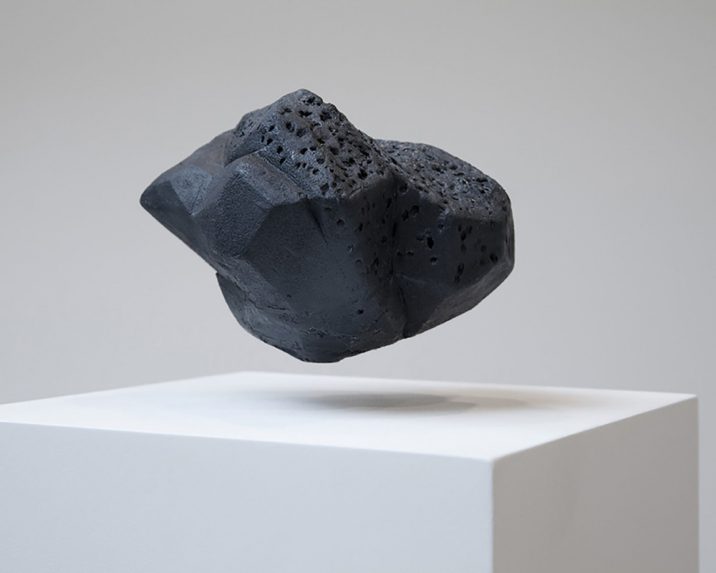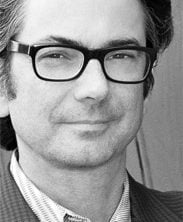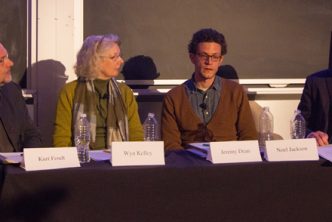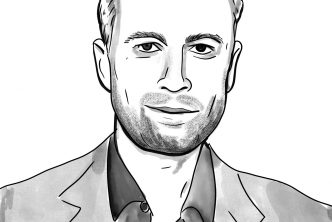CAST Visiting Artist Agnieszka Kurant joined Stefan Helmreich, professor of Anthropology; Caroline Jones, professor of History, Theory and Criticism of Architecture and Art; and Adam Haar Horowitz, master’s student and research assistant in the Fluid Interfaces Group, to discuss the idea of collective intelligence in relation to emerging technology, artistic inquiry, and social and cultural movements.
Kurant reflects on outsourcing her artworks to human and non-human collective intelligence and the system of profit-sharing she has created, artworks as complex systems or collective tamagotchis emulating life, and the observable evolution of individual authorship, culture, nature, labor and society. Haar Horowitz touches on the collective in relationship to experience research in the neurosciences and experience production in the arts. Helmreich discusses metaphors of collective human action derived from physics, computer science, animal worlds, and fluid dynamics, and will reflect on the politics of these framings. Jones addresses the curious invocation of “intelligence” in discussions of aggregated agency, with specific reference to the so-named “mobile brain” or “immune brain” of the distributed system (mostly outside the cranium) that learns, remembers, and teaches, negotiating between tolerance and threat in relation to xeno-bacteria.
The panel was moderated by Nick Montfort, professor of Comparative Media Studies/Writing.





